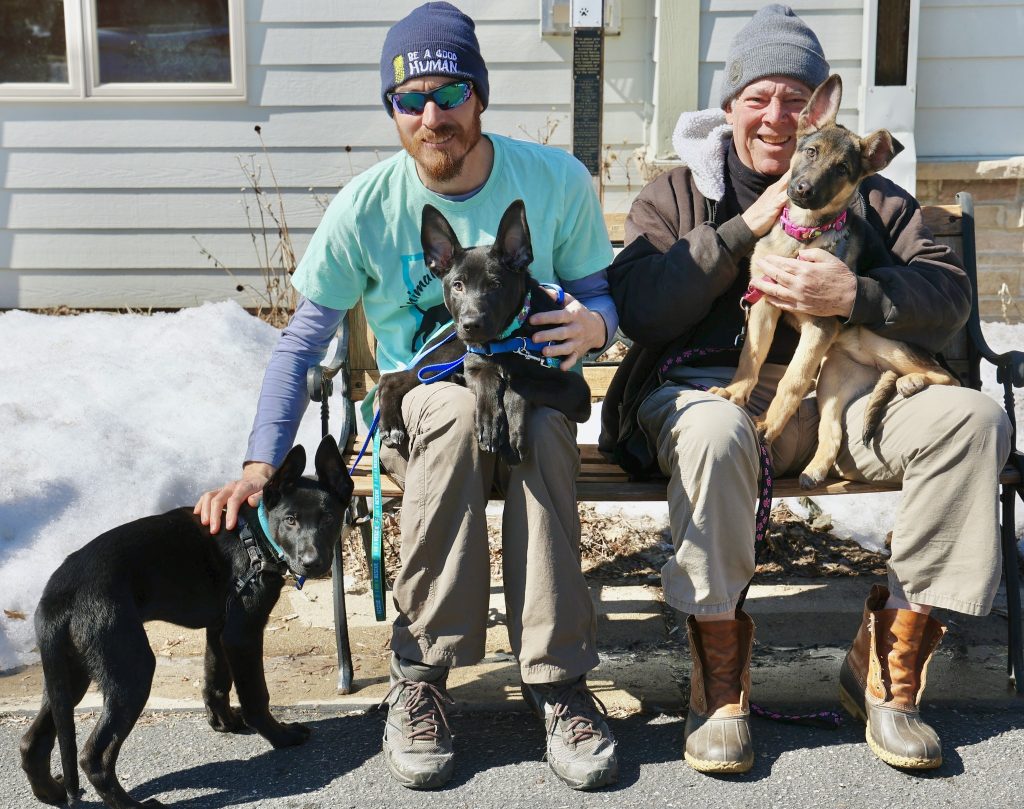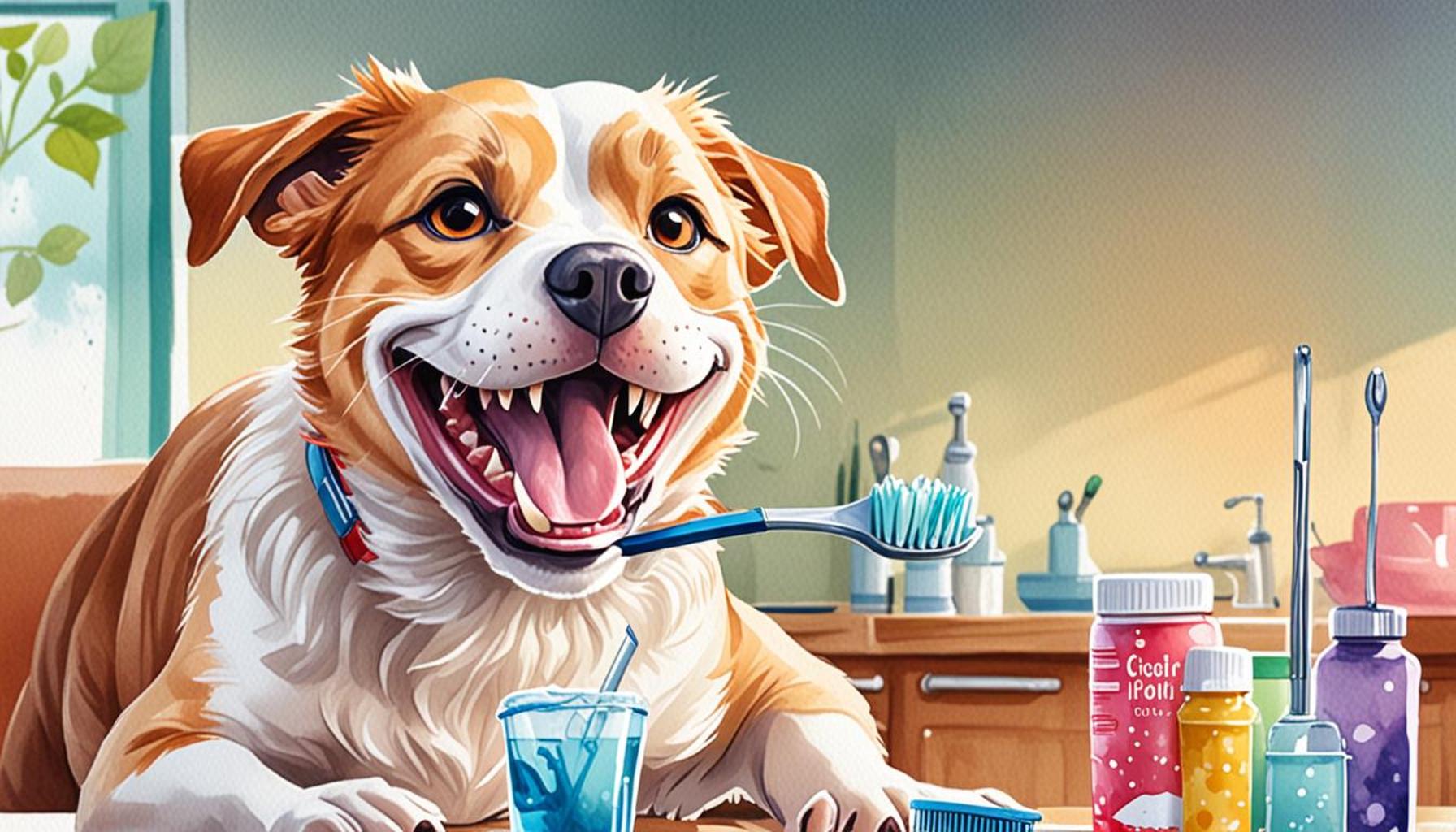The Importance of Puppy Socialization: How to Prepare Your Dog for the World

The Foundation of a Happy Canine Life
Starting your puppy’s journey in the world is crucial. Puppy socialization is the process that helps your dog become a well-adjusted adult. Proper socialization lays the groundwork for a lifetime of positivity and security, shaping their personality and behavior as they grow. Establishing this foundation during the early critical developmental period is vital, as it sets the stage for their interactions and reactions to their environment throughout their lives.
During the first few months, puppies are like sponges, soaking up experiences. This sensitive developmental window typically lasts until they are about 16 weeks old, making it imperative to expose them to a variety of sights, sounds, and smells, including:
- Different environments: Introducing puppies to diverse settings such as parks, bustling city streets, or serene rural areas helps them learn how to cope with varying levels of stimulation. For example, a calm walk in a quiet park can familiarize them with the feel of grass under their paws, while a bustling street can teach them how to stay calm amid noise and commotion.
- Other animals: Meeting friendly dogs and even cats can teach social cues such as playfulness and boundaries. Organizing puppy playdates or attending local dog parks can provide these essential interactions to foster companionship and reduce future aggression.
- People: Interacting with a diverse range of individuals, including adults, children, and seniors, exposes puppies to different behaviors, appearances, and emotions. This exposure can be beneficial in preventing fear-based reactions and ensuring they are friendly and approachable as adults.
Socializing your puppy effectively can lead to numerous benefits, such as:
- Reduced fear: Thorough exposure to various experiences helps puppies face new situations with confidence rather than fear. For instance, a well-socialized puppy may approach a vacuum cleaner without hesitation, while one that lacks exposure may run in fear.
- Improved behavior: Proper socialization decreases the likelihood of aggression and anxiety, providing your puppy with the tools to navigate complex social dynamics gracefully. Well-adjusted dogs tend to display less reactivity and are more enjoyable companions.
- Enhanced adaptability: Socialization prepares puppies for various situations throughout their lives, making them more capable of handling changes such as relocating homes, visiting new places, or encountering unfamiliar individuals in a positive manner.
Many dog owners underestimate the importance of puppy socialization at these early stages. Understanding this crucial aspect of dog ownership will set your furry friend on the right path. By giving them the tools they need, such as positive reinforcement training, exposure to the wider world, and support while meeting new friends, you can help your dog thrive in the world they will grow up in. The more proactive you are in their socialization process, the more confident and well-adjusted they will become in a variety of situations, ensuring a harmonious life together for years to come.
LEARN MORE: Click here to dive deeper

Understanding Puppy Socialization: The Keys to Success
As your new puppy begins their exploration of the world, the concept of puppy socialization becomes increasingly important. During the early weeks of a puppy’s life, their brain is developing and forming neural connections; positive experiences can greatly influence their future behavior. By strategically introducing your puppy to different social environments, you help them build confidence and resilience, laying a strong foundation for their adult personality.
Engaging your puppy in varied experiences is not just about fun; it’s a vital process that can shape how they respond to a multitude of situations later in life. Here are several key elements that contribute to effective puppy socialization:
- Exposure to Stimuli: Start by exposing your puppy to various sounds, sights, and sensations. Urban environments with cars, sirens, and crowds significantly differ from quiet rural settings. Both experiences should be introduced gradually and positively, allowing your puppy to feel secure while they learn to navigate these diverse stimuli.
- Veterinary Visits: Regular visits to the vet, starting from a young age, can help puppies associate medical environments with positive experiences. Offering treats during check-ups or creating a routine around these visits can transform their view of necessary healthcare from a source of anxiety to a rewarding experience.
- Positive Reinforcement: Associating new experiences with love and treats is crucial. When a puppy encounters something unfamiliar, rewarding them with treats for calm behavior reinforces a sense of security and promotes future confidence.
Engaging in puppy training classes can significantly enhance your socialization efforts. These classes are designed to expose puppies to different dogs and people in a controlled environment, helping them adjust and learn to interact appropriately. Such classes also provide valuable insights into behavioral cues, both your puppy’s and those of other dogs.
The benefits of thorough puppy socialization extend beyond just immediate comfort in new situations. When done effectively, socialization can lead to:
- Stronger Bonding: Spending quality time socializing your puppy helps to build trust and strengthens your bond. The more experiences you share, the more your puppy sees you as a positive focal point in their world.
- Improved Overall Behavior: Well-socialized dogs are typically calmer, more obedient, and easier to train. Exposure to various experiences decreases the chances of behavior issues such as aggression, fear, and anxiety later on.
- Community Engagement: A well-socialized dog often becomes a welcome member of the community. Whether at the dog park, cafes, or even on family trips, a confident, well-adjusted dog can safely engage with both people and other animals, enhancing your family’s social interactions.
As you embark on the rewarding journey of puppy socialization, remember that laying down this critical groundwork will offer immeasurable benefits throughout your dog’s life. By taking a proactive approach and remaining consistent in your efforts, you’re not just preparing your puppy for the world; you’re also setting the stage for a joyful and enriching relationship that can last for years to come.
The Role of Early Socialization in Dog Development
Socialization is not merely a phase in a puppy’s life; rather, it is a crucial foundation for their emotional and behavioral well-being throughout their lifespan. The first few months of a puppy’s life are vital, as this is the period when they can absorb experiences and lessons that shape their future interactions with other animals and humans. Proper socialization helps reduce the likelihood of behavioral issues later on, such as anxiety, aggression, or fearfulness.Introduced Experiences: Ensuring your puppy has a variety of experiences – from loud noises to different environments – is vital. Early exposure, when done correctly, results in a well-adjusted dog that embraces new adventures instead of retreating in fear.Improved Temperament: Puppies that engage in socialization with other dogs and people often develop better temperaments. They become confident, friendly, and comfortable in various situations, making outings to parks or gatherings more enjoyable. This is especially crucial for breeds predisposed to anxiety or wariness around strangers.
Techniques for Successful Socialization
Socializing your puppy doesn’t have to be daunting. Start slow and incorporate frequent outings to pet-friendly locations, meet new people, and introduce your pup to other dogs with a good temperament. Here are essential techniques to facilitate effective socialization:Puppy Classes: Enroll your puppy in a well-structured socialization or kindergarten class. These classes offer controlled environments where your dog can interact with others safely while learning essential commands.Positive Reinforcement: Use treats and positive reinforcement to reward your puppy for exhibiting calm and friendly behavior during social interactions. This will encourage them to replicate that behavior in the future.Controlled Exposure: Gradually introduce your puppy to various experiences, gradually increasing their exposure to different settings. Whether it’s a busy street, a bustling pet store, or a dog park, each experience broadens their comfort zone.Through these methods, your puppy will grow to be a well-adjusted and confident adult dog, prepared to tackle the world with ease. The importance of puppy socialization cannot be overstated; it is the key to fostering a harmonious relationship between your dog and the world around them.
EXPLORE MORE: Click here to discover how digital trends are transforming pet supply needs
Practical Strategies for Effective Puppy Socialization
Socializing your puppy is more than just a series of happy outings; it requires a structured approach and a keen understanding of your dog’s unique personality. Each puppy is different, and customizing their socialization experience can lead to more successful outcomes. Here are practical strategies and tips to ensure your puppy is well-prepared for the world:
- Start Early: The optimal window for socialization is between three and fourteen weeks of age. During this period, puppies are more open to new experiences. It is crucial that you expose your puppy to various environments, sounds, people, and other animals before they reach approximately 16 weeks. This helps imprint positive associations in their young minds.
- Organized Playgroups: Consider enrolling your puppy in local playgroups or puppy kindergarten classes. In these settings, your puppy will meet other dogs in a supervised environment. Here, they will learn essential play behaviors and improve their communication skills, which will be vital as they interact with other dogs in the future.
- Introduce New Environments: While taking leisurely walks around the neighborhood is beneficial, you can enhance these outings by varying the locations you visit. Take trips to a busy park, a bustling downtown area, or even a pet-friendly store. Each new environment presents unique challenges and stimuli, allowing your puppy to learn how to adapt flexibly.
- Positive Experiences with People: It’s essential that your puppy interacts with a diverse array of people, including men, women, and children of all ages. Having friends and family assist in these interactions can create a positive learning atmosphere. Encourage gentle petting and rewarding interactions, helping your puppy associate strangers with fun and affection.
- Overcoming Fears Gradually: Should your puppy show signs of fear or anxiety toward a certain stimulus (like loud noises, slippery floors, or sudden movements), approach the situation slowly. Gradually exposing them to this fear-inducing factor while offering treats can help them form new, non-threatening associations.
Additionally, observing your puppy during these socialization experiences is key. Pay attention to their body language; signs of stress like tucking their tail or turning their head away indicate discomfort. Intervening gently and allowing for breaks can help your puppy cope better with overwhelming situations, reinforcing a sense of security in their surroundings.
The Role of Vaccination in Socialization
It’s important to address the concerns surrounding puppy vaccinations. Many owners hesitate to socialize their puppies too early for fear of exposing them to diseases. While keeping your puppy safe from illness is crucial, it’s also important to strike a balance. Discuss with your veterinarian when it is safe to start socializing your puppy while still ensuring they are adequately protected. Most experts agree that carefully monitored socialization outings are safe once the initial vaccination series is completed. This allows puppies to meet other dogs and people while decreasing the chances of contagious diseases.
By integrating these strategies into your puppy’s routine, you can cultivate a well-adjusted dog capable of handling various social situations with ease. Remember, socialization is not a one-time event but an ongoing process that ideally continues throughout your dog’s life. Each positive experience builds their capacity to thrive in an ever-changing world, transforming them into a confident and adaptable companion.
DISCOVER MORE: Click here to uncover the advantages of scent training
Conclusion: Crafting Confident Canines Through Socialization
The journey of puppy socialization is indispensable for setting the stage for a well-adjusted dog, ready to take on the diverse challenges of the world. By implementing effective strategies—such as beginning early, arranging playgroups, and exposing your puppy to varied environments—you lay down a solid foundation for your dog’s future interactions. Remember, exposure during the critical socialization window between three and fourteen weeks can make an enduring impact on your puppy’s character.
Moreover, fostering positive interactions with people and guiding your puppy through their fears can help cultivate resilience and adaptability. It is important to monitor your puppy’s body language and understand their needs, ensuring that every experience is constructive. Addressing vaccination concerns with a veterinarian enables you to protect your pup while giving them opportunities to socialize safely.
Ultimately, the essence of socialization lies in its continuous nature. A well-socialized dog not only brings joy and companionship but also contributes to a harmonious community. As you embark on this rewarding journey, consider each outing and interaction an investment in your puppy’s emotional well-being and social competence. With your dedicated effort, you can nurture a confident canine companion equipped to thrive in an ever-changing world. Dive deeper into the realm of canine socialization, and you may uncover even more rewarding aspects of your dog’s incredible journey toward becoming a beloved family member.


